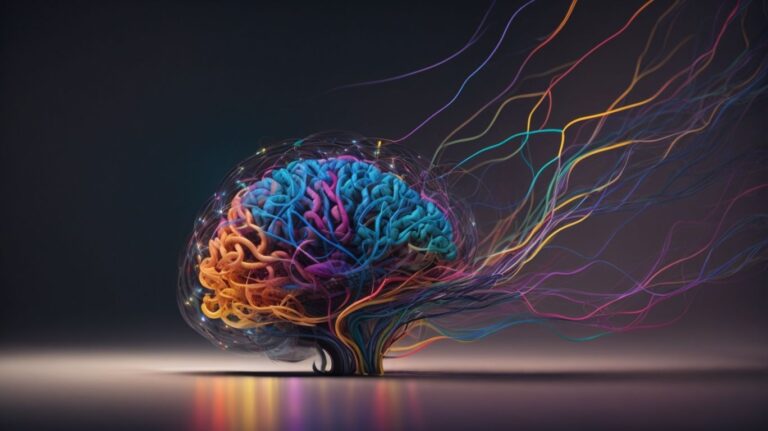Cognitive psychology is a fascinating field that delves into the inner workings of the mind. In this article, we will explore the key concepts of cognitive psychology, including perception, attention, memory, language, problem-solving, and decision-making. We will also discuss how cognitive psychology differs from other branches of psychology, such as behaviorism and psychoanalysis, and examine its practical applications in education, marketing, therapy, and artificial intelligence.
We will highlight the limitations of cognitive psychology, such as reductionism and the lack of consideration for emotion and culture. Join us as we demystify cognitive psychology and explain its basics in simple terms.
Contents
- 1 What Is Cognitive Psychology?
- 2 What Are The Key Concepts Of Cognitive Psychology?
- 3 How Does Cognitive Psychology Differ From Other Branches Of Psychology?
- 4 What Are The Applications Of Cognitive Psychology?
- 5 What Are The Limitations Of Cognitive Psychology?
- 6 Frequently Asked Questions
- 6.1 What is Cognitive Psychology?
- 6.2 How is Cognitive Psychology different from other branches of psychology?
- 6.3 What are the basic principles of Cognitive Psychology?
- 6.4 How does Cognitive Psychology explain human behavior?
- 6.5 Why is it important to understand Cognitive Psychology?
- 6.6 Can Cognitive Psychology be applied in real life?
What Is Cognitive Psychology?
Cognitive psychology is a branch of psychology that focuses on the study of cognitive processes such as memory, perception, attention, and decision-making.
Cognitive psychology delves into how individuals perceive, think, and remember information, aiming to uncover the intricacies of the mind. By exploring these internal mental processes, researchers in this field seek to unravel complex phenomena like problem-solving and language comprehension. Understanding these cognitive mechanisms not only sheds light on human behavior but also aids in developing strategies for cognitive enhancement and interventions. For instance, studies have shown how cognitive behavioral therapy effectively treats conditions like depression and anxiety by targeting dysfunctional thought patterns.
What Are The Key Concepts Of Cognitive Psychology?
Key concepts in cognitive psychology include memory, behavior, perception, attention, decision making, and cognitive processes that underlie human thought and behavior.
In cognitive psychology, memory is a crucial concept that involves the encoding, storage, and retrieval of information. Understanding how memory works not only helps in explaining everyday forgetfulness but also plays a significant role in learning and problem-solving. For instance, studies have shown that individuals with better working memory tend to perform better in academic tasks.
Behavior in cognitive psychology refers to observable actions influenced by internal mental processes. Researchers investigate how cognitive processes shape behaviors, such as decision-making, problem-solving, or emotional responses.
Perception in cognitive psychology involves interpreting sensory information to construct our understanding of the world. Our perceptual processes influence how we experience the environment and interact with others.
Perception
Perception in cognitive psychology refers to the process of interpreting and organizing sensory information to make sense of the world around us. For a comprehensive understanding of cognitive psychology, you can refer to this external link that explains the basics in simple terms.
This crucial function allows individuals to understand and interact with their environment, shaping their responses and actions based on the interpreted stimuli. Cognitive processes are heavily reliant on perception since it serves as the initial step in the complex chain of mental processing. Various perceptual mechanisms such as selective attention, depth perception, and pattern recognition play vital roles in filtering and interpreting sensory data. Researchers have conducted numerous experiments to investigate how perception influences decision-making and behavior in daily life, providing valuable insights into the intricate workings of the human mind.
Attention
Attention is a crucial cognitive process that involves selecting and focusing on specific stimuli while filtering out irrelevant information.
This ability is vital for organizing thoughts, making decisions, and effectively interacting with the environment. Attentional mechanisms encompass various processes, such as alerting, orienting, and executive control, which work together to allocate cognitive resources based on task demands.
For instance, when reading a book, the orienting mechanism helps direct attention to specific words or phrases, while the executive control mechanism aids in maintaining focus despite distractions. Research shows that attentional deficits can impact daily life activities, affecting behavior and perception.
For example, individuals with attention-deficit/hyperactivity disorder (ADHD) often struggle with staying attentive during tasks and exhibit impulsive behaviors.
Memory
Memory is a fundamental cognitive process that involves the encoding, storage, and retrieval of information, including short-term memory mechanisms.
There are various types of memory, such as sensory memory, working memory, and long-term memory, each playing a crucial role in our daily cognitive functions.
Sensory memory briefly holds information from our senses, like a snapshot of our surroundings. Working memory helps us actively manipulate and process information, like a mental scratchpad, while long-term memory stores vast amounts of information over longer periods.
Memory formation occurs through a process called encoding, where information is transformed into a neural code for storage. Retrieval involves recalling stored information, which can be influenced by factors like context and emotional state.
Language
Language is a complex cognitive process that involves the use of symbols and rules to convey meaning, reflecting cognitive mechanisms underlying communication.
Language plays a crucial role in cognition, influencing not only our ability to communicate but also shaping our thoughts and perceptions. The process of acquiring language begins at an early age, with infants demonstrating remarkable abilities to parse and understand linguistic input.
- Research in cognitive psychology has shown that language acquisition is a multifaceted process, involving both innate biological predispositions and environmental influences.
- Language processing involves a series of cognitive tasks, including lexical access, syntactic parsing, and semantic integration, all occurring rapidly and almost effortlessly in most cases.
Problem Solving
Problem solving in cognitive psychology refers to the mental process of identifying, analyzing, and resolving challenges or obstacles using cognitive strategies.
These strategies involve a series of steps that individuals undertake to reach a solution, often involving both analytical and creative thinking. One commonly used approach is the trial-and-error method, where various solutions are attempted until the most effective one is found. Another method is the use of algorithms, which are step-by-step procedures that guarantee a solution if followed correctly. Heuristics, or mental shortcuts, are commonly employed to make quick decisions based on past experiences or general rules. For example, in a study by Kahneman and Tversky in behavioral economics, participants were shown to use heuristics such as availability bias to make judgments quickly under uncertainty.
Decision Making
Decision making in cognitive psychology involves selecting the best course of action from multiple alternatives based on cognitive evaluations and preferences.
One of the key aspects influencing decision outcomes is the concept of cognitive biases. These biases are systematic patterns of deviation from norm or rationality in judgment, whereby individuals create their own subjective reality based on their perceptions. For instance, confirmation bias is a common cognitive bias where individuals tend to search for, interpret, and remember information that confirms their preconceptions.
How Does Cognitive Psychology Differ From Other Branches Of Psychology?
Cognitive psychology differs from behaviorism and psychoanalysis by focusing on internal mental processes, cognitive approaches to behavior, and the study of cognitive maps in understanding human thought and behavior.
Behaviorism, proposed by B.F. Skinner, emphasizes observable external behavior and the influence of rewards and punishments on behavior. In contrast, cognitive psychology delves into how the mind processes information, makes decisions, and creates mental representations of the world. While behaviorism is more deterministic in nature, cognitive psychology acknowledges the role of internal mental states and individual differences. Psychoanalysis, developed by Sigmund Freud, centers around unconscious drives, childhood experiences, and the impact of emotions on behavior. Cognitive psychology’s focus on processes like memory, problem-solving, and decision-making sets it apart from traditional behavioral and psychodynamic perspectives.
Behaviorism
Behaviorism in psychology emphasizes observable behavior and external stimuli as determinants of behavior, contrasting with cognitive psychology’s focus on internal mental processes.
One of the key principles of behaviorism is the idea that behavior can be understood through conditioning, where individuals learn specific responses through reinforcement or punishment. This concept, popularized by psychologists such as Ivan Pavlov and B.F. Skinner, highlights the importance of environmental influences on behavior.
However, behaviorism has been criticized for its limitations in explaining complex cognitive phenomena such as language acquisition, problem-solving, and memory, which are central to understanding human behavior. This criticism led to the emergence of cognitive psychology, which shifted the focus to internal mental processes like perception, thinking, and memory.
In contrast to behaviorism’s emphasis on observable behavior, cognitive psychology uses research methodologies such as experiments, observations, and computational modeling to study mental processes indirectly. These methodologies help researchers uncover the underlying cognitive mechanisms that drive behavior, offering a more comprehensive understanding of human cognition and behavior.
Furthermore, cognitive psychology integrates insights from various disciplines such as neuroscience, linguistics, and computer science to develop comprehensive theoretical frameworks that explain how mental processes influence behavior. This interdisciplinary approach allows cognitive psychology to provide a more holistic perspective on human cognition than behaviorism.
Psychoanalysis
Psychoanalysis, unlike cognitive psychology, delves into unconscious processes, early childhood experiences, and symbolic meanings underlying behavior, diverging from cognitive psychology’s emphasis on conscious cognition.
One of the core tenets of psychoanalysis is the belief that individuals’ behaviors are heavily influenced by unconscious desires, conflicts, and memories that stem from early experiences, often hidden from conscious awareness. This perspective, developed by Sigmund Freud, emphasizes the role of childhood experiences and the importance of examining the unconscious mind to understand current behaviors and mental processes.
In contrast, cognitive psychology focuses on the study of cognitive processes, such as memory, problem-solving, and decision-making, highlighting the rational and conscious aspects of human behavior. While psychoanalysis relies on therapy techniques like free association, dream analysis, and transference to uncover unconscious motivations, cognitive psychology utilizes methods such as experiments, observations, and cognitive assessments to study mental processes objectively.
What Are The Applications Of Cognitive Psychology?
Cognitive psychology finds diverse applications in education, therapy, marketing, and artificial intelligence, leveraging cognitive principles to enhance learning, address cognitive disorders, and develop intelligent systems.
Within the realm of education, cognitive psychology plays a crucial role in shaping teaching methodologies to optimize knowledge retention and student engagement. By understanding how individuals process information, educators can tailor their approach to accommodate various learning styles, ultimately fostering a more effective and inclusive learning environment.
In the realm of marketing, cognitive psychology is utilized to craft persuasive messaging and design user-friendly interfaces that appeal to consumers’ cognitive biases and preferences.
Education
In education, cognitive psychology informs learning theories, instructional design, and classroom practices to optimize student learning outcomes and promote effective teaching strategies.
Cognitive psychology plays a crucial role in understanding how students process information, remember concepts, and solve problems in educational settings. By incorporating insights from cognitive psychology, educators can tailor their teaching methods to match the mental processes involved in learning.
The application of cognitive psychology principles can be seen in various learning theories such as constructivism, which emphasizes active participation and personal meaning-making in the learning process. For instance, when teachers design lessons that encourage students to connect new information with prior knowledge, they are leveraging cognitive psychology to enhance learning efficacy.
Marketing
Cognitive psychology plays a vital role in marketing strategies by understanding consumer behavior, decision-making processes, and perception to create effective advertising campaigns and product designs.
One key aspect of applying cognitive psychology principles in marketing is studying how consumers process information and make purchasing decisions. By tapping into cognitive biases and heuristics, marketers can influence consumer behavior and preferences. For example, using the availability heuristic, where consumers rely on readily available information, marketers can enhance brand recall by repeatedly exposing individuals to brand messaging.
Therapy
Therapeutic applications of cognitive psychology, such as cognitive-behavioral therapy, focus on addressing cognitive distortions, maladaptive behaviors, and cognitive restructuring to improve mental health and well-being.
Cognitive-behavioral therapy (CBT) utilizes a structured approach that helps individuals identify and challenge their negative thought patterns. By examining the relationship between thoughts, feelings, and behaviors, CBT aims to reframe unhealthy beliefs and foster healthier coping mechanisms. Techniques commonly used in CBT include cognitive restructuring, behavioral experiments, and exposure therapy. Research has shown CBT to be effective in treating a wide range of psychological disorders, from anxiety and depression to post-traumatic stress disorder. For instance, a study by Beck and colleagues demonstrated significant improvements in depressive symptoms among patients receiving CBT compared to those in a control group.
Artificial Intelligence
Artificial intelligence leverages cognitive psychology principles to develop intelligent systems capable of learning, problem-solving, and adaptive decision-making, driving advancements in software development and human-computer interaction.
This field blends the understanding of human cognition with the power of machine learning to create algorithms that mimic cognitive processes. Cognitive models such as neural networks, decision trees, and Bayesian networks are commonly used. These models enable AI systems to interpret data, make predictions, and optimize performance. For instance, in software development, cognitive algorithms like deep learning are employed to enhance image recognition, natural language processing, and recommendation systems. In interface design, AI-driven algorithms analyze user behavior to personalize experiences and improve usability.
What Are The Limitations Of Cognitive Psychology?
Despite its strengths, cognitive psychology faces limitations such as reductionism in complex behaviors, overlooking emotional and cultural influences on cognition and behavior.
This reductionist approach in cognitive psychology tends to oversimplify the intricate processes of the mind, often neglecting the intricate interplay of emotions and sociocultural factors that significantly shape cognition and behavior.
For instance, when studying memory recall, purely focusing on memory capacity without considering the emotional context or cultural background of the individual can lead to incomplete conclusions.
Many cognitive research studies lack diversity in participants, which hinders the generalizability of findings across different populations.
Reductionism
Reductionism in cognitive psychology oversimplifies complex behaviors by breaking them down into basic cognitive processes, potentially neglecting the holistic nature of human cognition and behavior.
While reductionism can provide insights into how individual components of cognition work, it often fails to capture the intricate interplay between various cognitive processes that contribute to complex behaviors.
This approach tends to focus on isolating specific aspects of behavior, such as memory or attention, without considering the broader context in which these processes operate.
For example, when studying decision-making, a reductionist might break it down into sequential steps without acknowledging the influence of emotions, social dynamics, or external factors.
Lack of Emotion And Culture Consideration
Cognitive psychology’s limitations include the oversight of emotional and cultural factors that significantly influence cognition and behavior, highlighting the need for a more inclusive approach in psychological research.
Emotions play a crucial role in shaping how individuals perceive and process information, affecting memory, decision making, and problem-solving strategies. For example, studies have shown that a person’s emotional state can influence their attention and recall of events, demonstrating the interconnectedness of emotions and cognitive processes. Furthermore, cultural norms also impact cognitive functions, as societal beliefs and values can shape how individuals interpret stimuli and make meaning of their experiences.
Frequently Asked Questions
What is Cognitive Psychology?
Cognitive Psychology is the scientific study of mental processes such as attention, perception, memory, thinking, and problem-solving.
How is Cognitive Psychology different from other branches of psychology?
Cognitive Psychology focuses on the internal mental processes, while other branches of psychology focus on external behaviors.
What are the basic principles of Cognitive Psychology?
Cognitive Psychology is guided by the principles of information processing, the use of mental representations, and the influence of context on cognitive processes.
How does Cognitive Psychology explain human behavior?
According to Cognitive Psychology, human behavior is influenced by how we process, store, and use information in our minds.
Why is it important to understand Cognitive Psychology?
Understanding Cognitive Psychology can help us improve our cognitive abilities, make better decisions, and have a better understanding of how our minds work.
Can Cognitive Psychology be applied in real life?
Yes, Cognitive Psychology has practical applications in areas such as education, therapy, and human-computer interaction.



